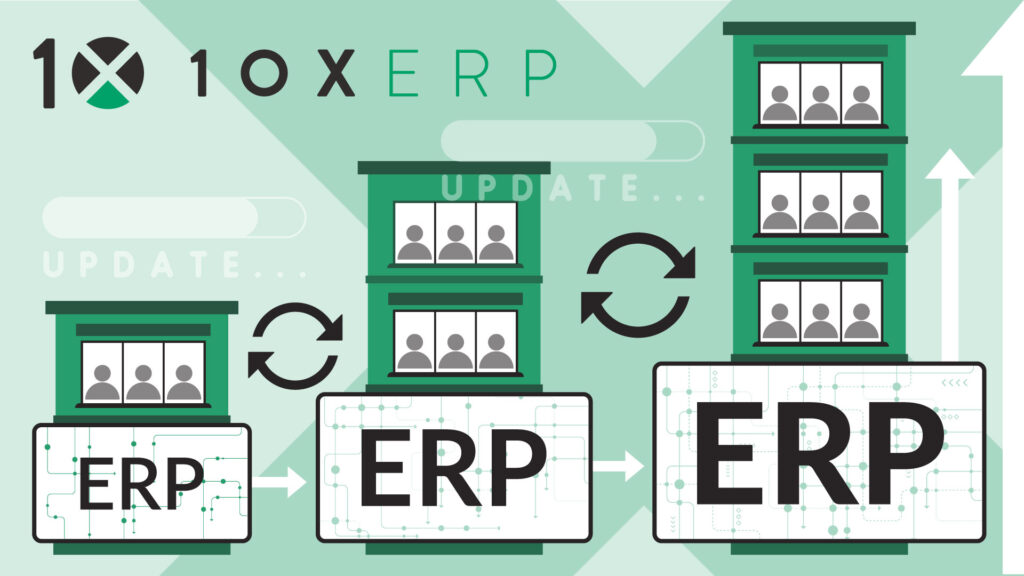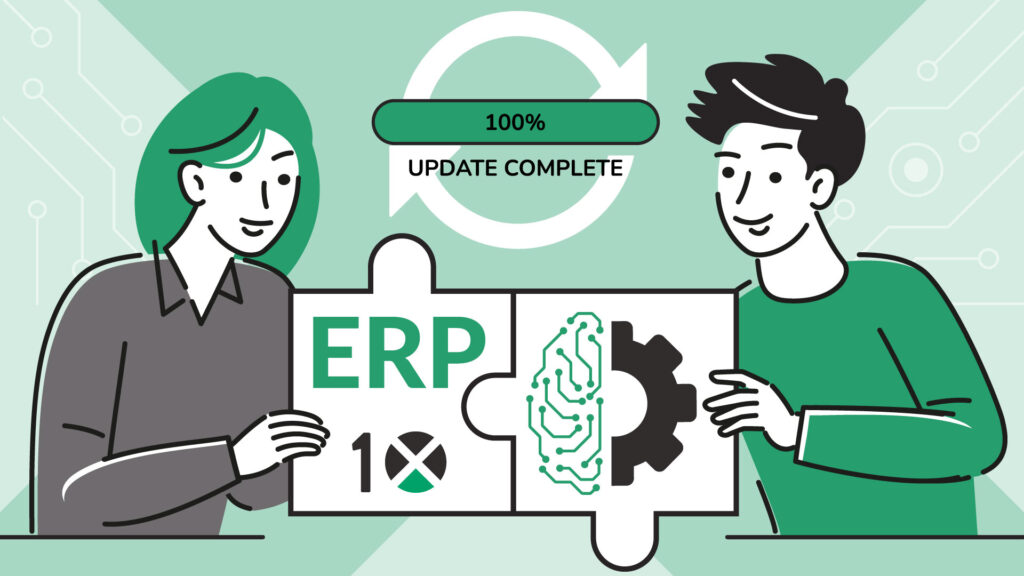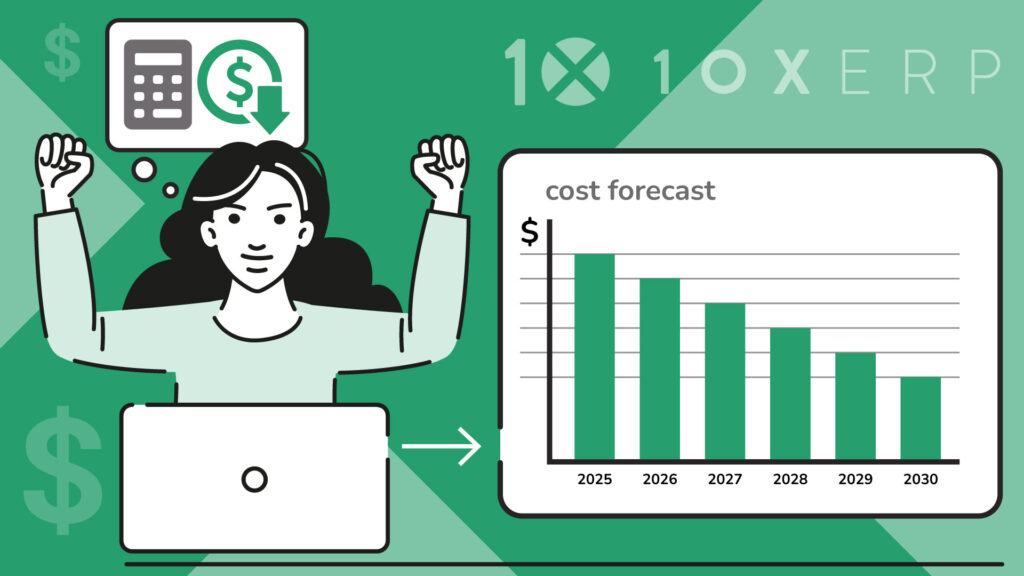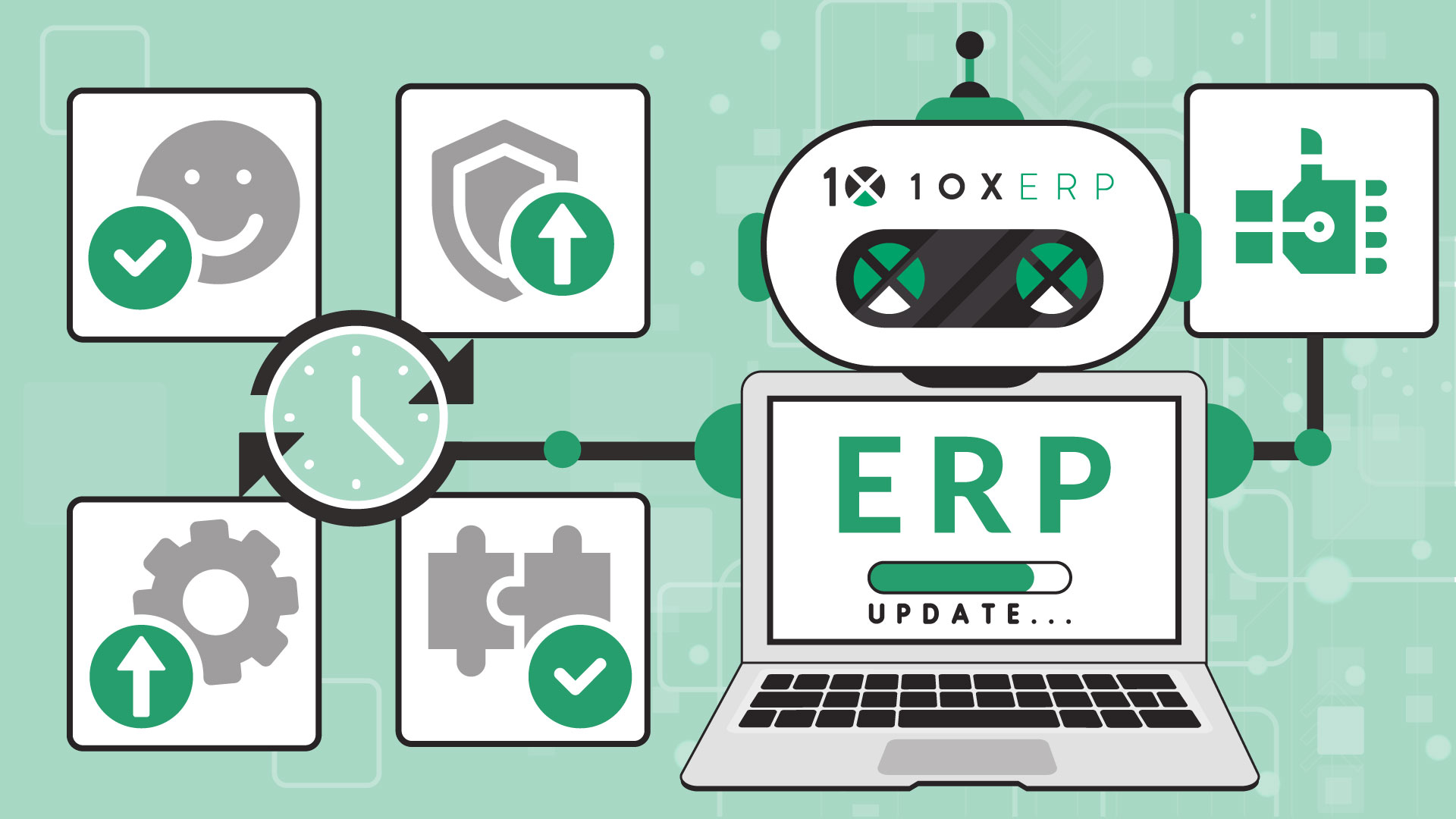Summary
- Regular ERP updates help businesses adapt to growth, enhance security, improve efficiency, and stay compliant with evolving industry standards.
- Keeping ERP systems updated ensures compatibility with other software, access to advanced technologies, and reduced total cost of ownership over time.
- By prioritizing regular updates, companies maintain a competitive edge, meet customer expectations, and avoid the risks associated with outdated systems.
Staying ahead of the competition in today’s fast-paced business landscape requires agility, innovation, and efficiency. For companies leveraging Enterprise Resource Planning (ERP) systems, regular updates are not just a best practice but a critical component of their success. Yet many businesses hesitate to update their ERP software, fearing disruption or additional costs. However, failing to update an ERP system can have far-reaching consequences, hindering growth, efficiency, and competitiveness. Here’s why regular ERP updates are essential for business success.

Adapt to Evolving Business Needs
Businesses are not static entities. As companies grow, enter new markets, or diversify their product lines, their operational needs evolve. Regular ERP updates ensure your system can support these changes, providing new features and functionalities tailored to modern business demands. An outdated ERP system may lack the tools necessary to manage expanded operations, causing inefficiencies and bottlenecks.
For instance, a growing distributor might need advanced inventory management tools or e-commerce integration to handle increased order volume. By keeping the ERP system updated, businesses can seamlessly scale their operations without major disruptions.
Enhance Security and Compliance
Cybersecurity threats are continually evolving, and an outdated ERP system is a prime target for malicious attacks. Regular updates often include critical security patches that protect sensitive business data from breaches. Moreover, updated ERP systems help businesses stay compliant with changing regulations and industry standards, minimizing the risk of costly penalties or reputational damage.
For example, updated ERP solutions can support compliance with data protection laws like GDPR or CCPA, ensuring businesses handle customer information responsibly. By neglecting updates, companies risk operating with vulnerabilities that could compromise their entire operation.
Boost Efficiency and Productivity
One primary goal of any ERP system is to improve efficiency by automating processes and streamlining workflows. Regular updates enhance these capabilities by introducing more intuitive user interfaces, faster processing times, and additional automation features. These improvements reduce manual tasks, empowering employees to focus on high-value activities that drive growth.
Imagine a scenario where your ERP update includes a new feature like automated data entry or enhanced reporting tools. These updates can save countless hours of labor, reduce errors, and provide faster access to actionable insights, significantly boosting overall productivity.

Leverage Cutting-Edge Technology
Technology evolves rapidly, and ERP providers continually innovate to stay ahead. Regular updates give businesses access to advanced technologies like artificial intelligence (AI), machine learning (ML), and predictive analytics. These tools can help businesses forecast demand, optimize supply chains, and improve customer service.
For example, AI-powered analytics in an updated ERP system can identify trends and patterns in sales data, enabling better decision-making and more accurate demand planning. Without these updates, companies risk falling behind competitors who are capitalizing on the latest technological advancements.
Maintain System Compatibility
Businesses today rely on a suite of interconnected software solutions, from CRM platforms to e-commerce tools. Regular ERP updates ensure compatibility with these systems, facilitating seamless data exchange and integration. An outdated ERP system may struggle to communicate effectively with newer applications, leading to data silos and inefficiencies.
Consider a company that integrates its ERP system with an e-commerce platform. An update might enable real-time inventory synchronization, ensuring accurate stock levels are displayed to customers. Without this update, the business could face challenges like overselling or delayed order fulfillment, harming its reputation.

Reduce Total Cost of Ownership (TCO)
While some businesses perceive ERP updates as costly, regular updates can reduce the total cost of ownership in the long run. Updated systems often require less maintenance, operate more efficiently, and minimize downtime. Conversely, outdated systems are prone to errors, crashes, and performance issues that lead to increased IT expenses and operational disruptions.
By keeping the ERP system current, businesses can avoid the escalating costs associated with maintaining legacy software while reaping the benefits of improved performance and functionality.
Stay Competitive in the Market
In an era where customer expectations are higher than ever, businesses must remain agile and responsive to market changes. Regular ERP updates equip companies with the tools needed to innovate, adapt, and deliver exceptional customer experiences. Falling behind on updates can leave businesses struggling to meet customer demands, opening the door for competitors to seize market share.
For instance, an updated ERP system may offer enhanced customer relationship management (CRM) features, enabling businesses to provide personalized service and strengthen customer loyalty. Without these capabilities, businesses risk losing customers to competitors offering a more modern, seamless experience.
Conclusion
Regular ERP updates are not merely an IT responsibility; they are a strategic imperative for sustained business success. From enhancing security and compliance to leveraging cutting-edge technology and reducing operational costs, the benefits of updating your ERP system far outweigh the perceived drawbacks. By prioritizing regular updates, businesses can ensure their ERP system remains a powerful ally in achieving their goals and maintaining a competitive edge in the market.
At 10X ERP, we understand the importance of staying ahead. Our cloud-based ERP solutions are designed to evolve with your business, delivering the tools and features you need to thrive in an ever-changing environment. Don’t let an outdated ERP system hold you back—embrace the power of regular updates and unlock your business’s full potential.
